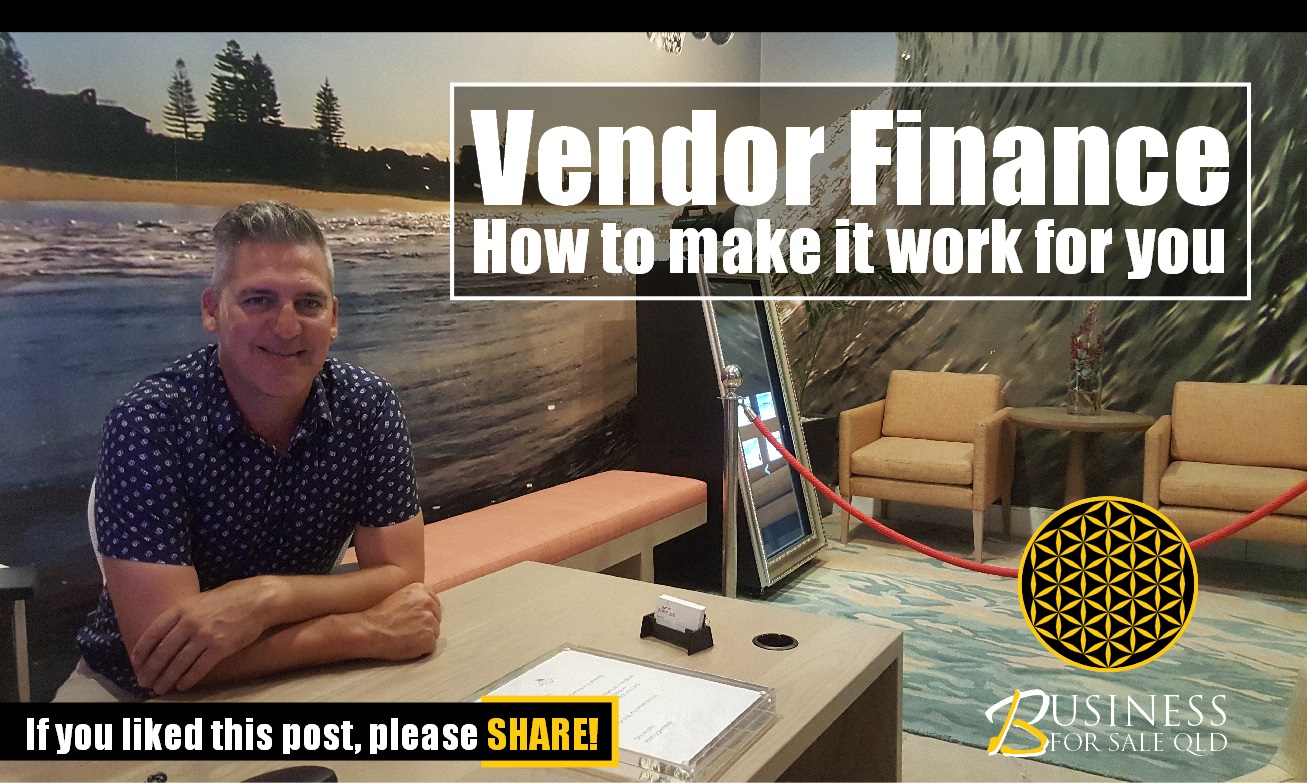What is Vendor Finance and what is the benefit?
We are finding that more and more business sales are being closed using Vendor Finance as sellers agree to fund part of the purchase price (“the gap”); and bridging the shortfall which would otherwise cost them the sale of their business.
WHAT IS VENDOR FINANCE?
It’s basically an “I owe you” from the buyer to the seller. The buyer pays an agreed amount to the seller on settlement of the sale. The balance is then an “I owe you”. It is important to understand that the seller is not actually lending the buyer any physical money.
BENEFIT TO SELLER:
- Seller can achieve their Asking Price (or very close to… or sometimes even more!);
- Seller can also achieve more than their Asking Price from additional payments received from Interest charged on the balance of the loan amount;
- Seller can take security against the business and it’s assets, the buyer’s company assets, and/or buyer’s real estate assets;
- Seller no longer needs to run the business but continues to receive payments.
BENEFIT TO BUYER:
- Buyer can buy a business where financing part or all of the gap is not possible;
- The seller has a vested interest in the continued profitability of the business;
- Buyer can pay off the loan amount using profits available through the business;
- Buyer owns a business as a “going concern” with a trading history so, after one to two years of successful trading, places the buyer in a stronger borrowing position to acquire more business and/or property (or pay out the vendor finance).
HOW DOES A VENDOR FINANCE DEAL LOOK?
We find that Vendor Finance offers greater flexibility over how a loan takes shape compared to a financial lending institution. The greatest advantage is that you can make an offer on how it might look and then both parties can negotiate back and forth to make it work. You can pretty much throw everything at it and agree on anything!
KEY ELEMENTS:
- Loan amount
- Loan term (generally 1 to 2 years (the term has to make sense to the seller, for example, they may not wait 2 years when they can make the same amount of money in 1 year if they kept the business))
- Frequency of repayments (e.g. weekly, monthly…)
- Instalment amounts
- When is the first instalment payable?
- Lump sum repayments (if any), how much and when?
- Interest free period (if any)
- Interest rate on loan amount ((if any) typically 7%pa to 12%pa in line with banks)
- Interest rate on defaults (typically 22%pa to 27%pa in line with banks)
- Security (e.g. business, property or other tangible asset/s)
- Management of defaults (e.g. what happens when a default occurs; will financial reports be made available, if so, how; and how will security be provided etc.)
DISCLAIMER
This is an opinion and should not be taken as professional or legal advice. The above is just a snap shot of Vendor Finance and has been provided to provoke some ideas which may help you make a deal happen for your own business sale. Each Vendor Finance deal is individually tailored so that the risk and benefit is worthwhile for each party and each party is sufficiently protected. Each person should assess Vendor Finance on a case by case scenario along with professional legal and financial advice. We can help structure and negotiate a Vendor Finance deal into a Contract of Sale; and you can always run it past your solicitor to satisfy yourself that it works for you.


